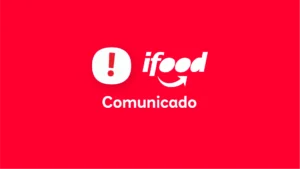Increasingly, consumers have become interested in companies' environmental responsibility index. A study by IBV (Institute for Business Value) points out that 84% from consumers consider this issue important when purchasing, whereas, in 2019, only 22% had this concern.
The new reality is forcing the delivery chain to adapt to make sustainable deliveries, in order to serve the environment and consumers. One iFood search showed that 54% of consumers prioritize restaurants that have sustainable packaging options, while another 28% have already stopped being customers of restaurants that use packaging that is harmful to the environment.
The change involves food logistics, which plays a crucial role in the supply chain. By adopting environmentally friendly practices, companies are able to reduce their carbon footprint, contributing to a more sustainable future.
The first big step to promoting sustainable delivery is awareness. Therefore, we have put together some practices that you can encourage in your company and explain how they help your brand to promote environmental preservation.
1. Use of electric or hybrid vehicles
To the deliveries with electric bikes, electric mopeds and electric motorcycles are a trend. Both the production and sale of this type of vehicle increased in 2022. And the estimate is that this market grow 50% worldwide by 2028, generating 77 billion dollars.
In addition to making deliveries more efficient, electric bikes also help to reduce pollution. iFood is a pioneer in encouraging this type of vehicle in deliveries. The project iFood Pedal is present in six cities in Brazil: São Paulo, Rio de Janeiro, Salvador, Recife, Porto Alegre and Brasília.
2. Route and load optimization
Optimizing transport routes and modes can reduce distance traveled and improve energy efficiency, which contributes to sustainable deliveries. By planning shorter, more efficient routes, less fuel is consumed and this reduces emissions of carbon dioxide (CO2), nitrogen oxides (NOx) and fine particles.
Other important points of optimized routes are the reduction in travel time and the possibility of delivering more goods in the same period, reducing the number of trips. To achieve this efficiency, Transport Management Systems and Tracking Devices are great allies.
3. Sustainable packaging
Excess packaging in delivery is a significant source of waste and environmental impact, especially when it involves plastics. Currently, of the 11.3 million tons of plastic waste produced in Brazil, only 1.3% is destined for recycling.
There are already alternatives to solve this problem, with recyclable, biodegradable, reusable and even edible materials. Some packaging technologies involve manufacturing containers from cassava starch, bamboo, rice and corn husk.
4. Collaboration with local suppliers
Prioritizing local suppliers brings benefits for more sustainable food logistics. In addition to the shorter distance traveled to obtain inputs and, therefore, lower fuel costs, the supplier guarantees the quality and freshness of the food.
With fresh food reaching consumers more quickly, it is possible to minimize waste and encourage sustainable and organic agriculture. The socioeconomic impact also ends up being a differentiator, as encouraging the local economy strengthens small producers and promotes the economic growth of the community.
5. Waste reduction strategies
Supporting local producers can be a strategy to reduce food waste – fresh food lasts longer. In this sense, inventory management practices and demand forecasting need to be efficient so that restaurants do not overproduce and do not need to throw away food.
Proper rotation techniques, monitoring expiration dates and correct storage are essential to avoid waste. Temperature monitoring and inventory management technologies can often optimize such practices on a daily basis.
Good for those who buy, good for those who sell
Sustainable delivery in food logistics is a challenge that goes through several stages of the production chain, from contact with suppliers to reaching the final consumer. Therefore, it represents several opportunities for a company to improve its operational efficiency and stand out as eco-friendly, strengthening its brand among those most interested in this change: consumers.
iFood is committed to preserving the environment and redirects resources to comply environmental goals by 2025. If you have an innovative idea to promote sustainable delivery, discover iFood Labs! Be part of this innovation ecosystem to promote the necessary changes.


